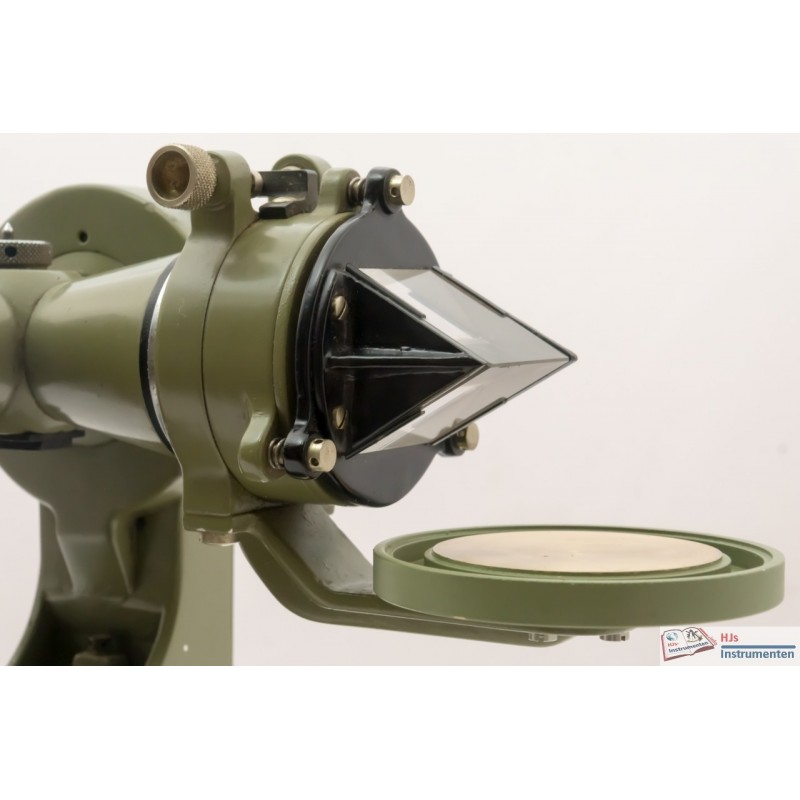









Wild Heerbrugg 45 degree astrolabe attachment Obtained from Switzerland
Product details: Wild Heerbrugg Astrolabe attachment | Wild Heerbrugg | Instrument acc. | Survey | Material: Brass
The astrolabe attachment fits to all 'old' style T1 and T2 thedoloties. Its purpose is to make very accurate astronomic measurements. Where other manufacturers such as Cooke, Troughton and Simms made a specific instrument for this purpose, Wild produced this attachment which has the same principle. The theodolite is set up as level as possible and then the telescope is leveled out using the bubble on the attachment. When the bubble is centrered the attachment is locked (tightened) to the telescope. Now mercury is poured in the observation tray creating a mirror surface that is level (even if the attachment is not exactly level). Originally a wind cover was supplied with the attachment; this is not there anymore. With the wind cover the mirror surface would not be influenced by wind.
Looking through the telescope, the prism gives a double image. One is reflected of the bottom part of the prism. The other is double reflected; once of the top of the prism and once of the mercury mirror. By fine adjusting the prism, the two images are brought in one line vertically. The measurement itself is one of time (so it requires an accurate chronometer as well) and uses the passage of a star through 60 degree of altitude. The moment the star images 'pass' each other (become one) is the moment of observation. Using tables the latitude and longitude of the observer can now be computed. As this is a direct measurement and the mercury mirror is always level, there are no errors in setting the instrument.
The instrument is very heavy and does not come with a counter weight, making it tough on the theodlite it is mounted on. In the manual it is shown together with an autocollimation eyepiece that I also have with it. As the autocollimation eyepiece only fits a bayonet style telescope, the instrument is mounted on my T1a. As this instrument is not servicable anymore, the added weight of the astrolabe on it will not render it inoperable (or rather it already was inoperable and will stay so).
Data sheet
You might also like